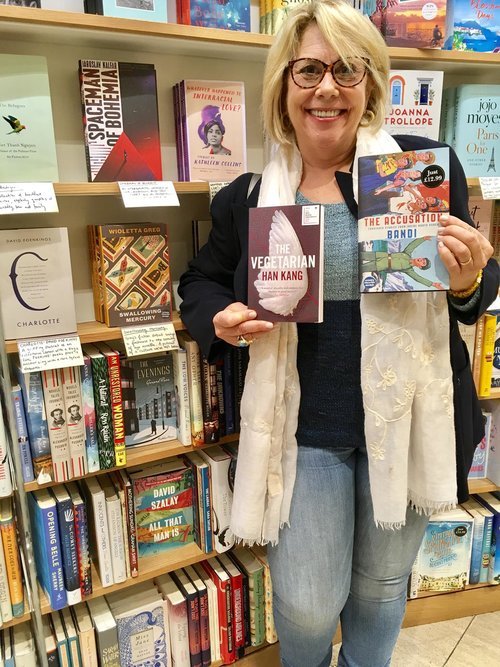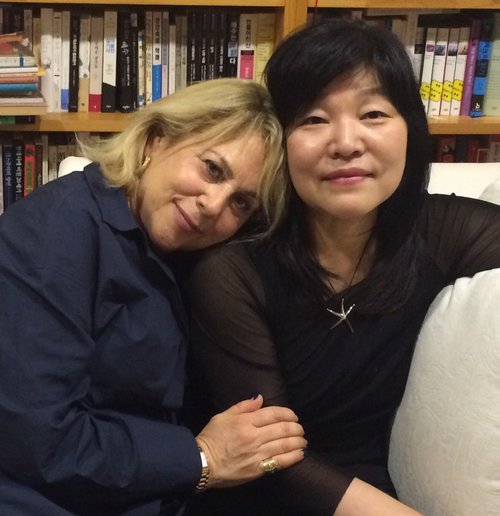The first work of Korean literature to be translated into English was “The Cloud Dream of the Nine” in 1922, translated by Canadian missionary James S. Gale. That was almost a century ago, but until recently Korean literature still did not get much exposure in the global market.
“The markets in the US and UK are growing a lot for Korean books,” founder of the BJZ Agency Barbara J. Zitwer told The Korea Herald by email.
 |
BJZ Agency founder Barbara J. Zitwer (Barbara J. Zitwer) |
Based in New York City, the agency specializes in discovering new authors from different countries, including South Korea, Poland and Germany. It mainly helps them navigate their international careers.
“It grows and grows with every new book and publication. And I think once a big movie or TV series is aired based on one of the Korean books, it will truly explode.”
BJZ Agency is also working to introduce Korean stories to film production companies in Hollywood and London.
“With my London based co-agent Emily Hayward Whitlock of The Artists Partnership, we sold Kim Un-su’s ‘The Plotters’ to Ink Factory, ‘The Only Child’ to Carnival Films and ‘Please Look After Mom’ to Blue Jar Productions, last year alone.”
Zitwer started working with Korean literature around 10 years ago.
“At the beginning, I met translators Chi young Kim and Sora Kim Russell and they have become my closest allies and champions of Korean books,” she said. According to BJZ Agency, Chi young Kim translated Gu Byeong-mo’s “Bruised Fruit” and Sora Kim Russell translated Kim Un-su’s new novel “Big Eye.”
Zitwer, who has represented a diverse range of renowned Korean authors, including Han Kang, Kim Un-su and Shin Kyung-sook, sees Shin’s “Please Look After Mom” as the first Korean novel to impress global readers.
“Shin led the way for everyone else to come, I think. ‘Please Look After Mom’ was the first NY TIMES bestseller, sold in over 30 countries, and became a beloved classic and showed international publishers that Korean authors could and did have global commercial appeal,” Zitwer said.
 |
BJZ Agency founder Barbara J. Zitwer (left) and Shin Kyung-sook (Barbara J. Zitwer) |
In the interview, Zitwer also shared her experience of meeting Shin.
“Shin took me to the Unmunsa Buddhist Temple and university in the Hogeosan Mountains,” she said. “Shin arranged for us to go to the all-female monastery and they invited her to do a reading for the student monks.”
She recalled sitting at the side of the classroom in the centuries-old Korean-style building and listening to Shin talk to the 40 to 50 students. She called the experience unforgettable.
“I saw their glee and happiness and I felt that I was truly in heaven. I felt that I made the right decision to become a literary agent because it had led me there,” she said.
Asked about Korean literature’s competitiveness, she said Korean novels are unique partially due to Korea’s history.
“I think the historical suffering of the Korean people and the separation of North and South is embedded in all the contemporary literature and that is unique to Korea,” Zitwer said. She mentioned Sohn Won-pyung’s book “Almond” as an example.
“She told me that her grandmother carried her mother from the North to the South during the war and so the sense of ‘han’ -- suffering, strength, longing for what has been lost -- is in them,” she said. “I want to add that Korean books are unique also in that many of them have a very unique sense of humor -- very special -- dark humor -- hilarious and uniquely Korean.”
However, she pointed out that this unique Korean culture also seems to have hindered the country’s literature from going global.
“Many of the books I represent were published many years before I brought them to the world, and so I think that Korean books and authors have not been represented in a big way before as Chinese and Japanese,” she said. “Maybe it is due to the modesty of the Korean culture not to show off.”
By Song Seung-hyun (
ssh@heraldcorp.com)





![[Herald Interview] 'Trump will use tariffs as first line of defense for American manufacturing'](http://res.heraldm.com/phpwas/restmb_idxmake.php?idx=644&simg=/content/image/2024/11/26/20241126050017_0.jpg)


![[Health and care] Getting cancer young: Why cancer isn’t just an older person’s battle](http://res.heraldm.com/phpwas/restmb_idxmake.php?idx=644&simg=/content/image/2024/11/26/20241126050043_0.jpg)
